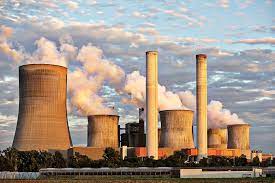Responding to Monday’s publication of the stark Impacts, Adaptation and Vulnerability report by the Intergovernmental Panel on Climate Change (IPCC), which details widespread, growing, and potentially catastrophic impacts of the changing climate, Jeni Miller, Executive Director of the Global Climate and Health Alliance. an international coalition of health professional and health civil society organisations, said:
“The IPCC’s impact report spells out not only the current impacts of climate change, but also the increasingly catastrophic effects it will bring, unless we see far stronger reductions in greenhouse gas emissions. The report drives home that governments must both take action to adapt our countries to the impacts we are already facing, and must also aggressively slash emissions in order to protect the lives and health of everyone on this planet”.
“Governments must take responsibility for helping communities become more resilient, and for putting in place robust national adaptation measures. But we need much more; if they only seek to treat the symptoms without curing the underlying disease, they will be consigning us all to a world of increasing hunger, poverty, injury, illness and death, as well as economic losses and ecosystem devastation.”
“Political leaders need to tackle the root cause, by dramatically cutting greenhouse gas emissions within this decade. By enacting stronger measures that have real world impact to reduce emissions to zero, the global community can curb global heating and ensure a world that will sustain people’s health and well being.”
“Last year’s IPCC report, The Physical Science Basis clearly confirmed that with ‘rapid and substantial reductions’ we can still limit global warming. Today’s impact report spells out the consequences if we fail to make these changes – and they are severe. Every nation will be impacted – indeed we’re already seeing those impacts now, with heat waves, flooding, superstorms, droughts and more threatening people’s physical and mental health, in rich, poor and middle income countries around the world – and the poorest and most marginalized of our communities will be hit the hardest. These palpable signs of the climate crisis and the resulting health emergency must serve to spur us towards transforming our food, energy, health, and transportation systems to make them fit for purpose.”
In November 2021, health professionals and workers from around the world delivered their Healthy Climate Prescription to world leaders assembled at the UN climate negotiations in Glasgow, warning that the climate crisis is the single biggest health threat facing humanity, and they called on world leaders to deliver on climate action and for national governments to deliver a healthy and sustainable future for their citizens.
“Health organisations representing 46 million health professionals from nearly every country in the world have spoken with a single voice about the severity and urgency of the climate crisis as a threat to health, and called for every country’s decision makers to take the steps that are needed to turn this crisis around,” Miller continued.
“At COP26, national leaders took steps in the right direction, but at a crawl when we need to be running. Current policies would allow for warming beyond historical levels, which would leave our world unrecognisable, and in many places, uninhabitable. With COP27 fast approaching, world leaders must return to the table with bolder plans, and a far greater willingness to work together throughout this year and beyond, until they achieve the level of climate action that offers a healthy and equitable future for humanity.”
“We need governments to put people’s health, and the health of the natural world that is our home, at the center of decision making. The costs of failing to do so are amply spelled out in the IPCC impacts report. We cannot afford to fail,”, concluded Miller.
Contacts: Dave Walsh, Communications Advisor, Global Climate and Health Alliance, +34 691 826 764 (Europe) – press@climateandhealthalliance.org
SOURCE: GLOBAL CLIMATE & HEALTH ALLIANCE/PACNEWS


















